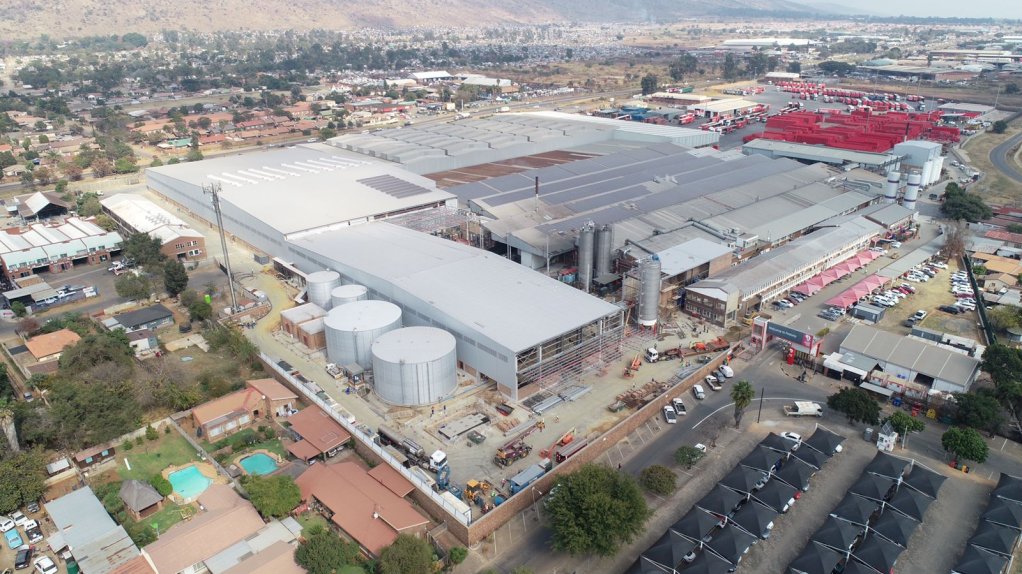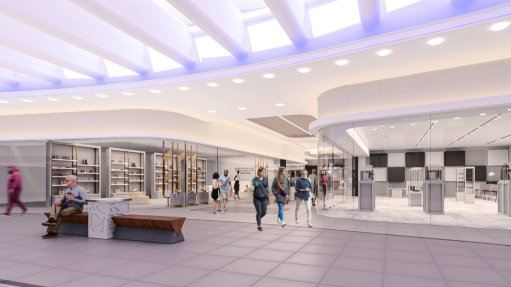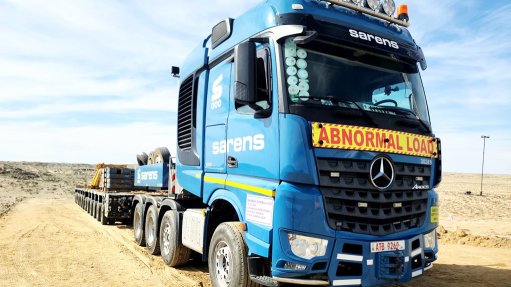Pandemic can spur innovation in property sector
Although the pandemic has made it difficult for commercial and industrial property stakeholders to plan effectively for the future, this has led to great innovations, new approaches and renewed opportunities, says engineering services consulting firm WSP Africa regional director Johan Piekaar.
“When looking to grow an avenue of a business, regardless of the state of the economy, it depends on managing risk and upfront capital investment versus the long-term return on investment.”
This approach is becoming more evident in the light industrial property sector, which includes warehousing, storage, and distribution centres, he points out.
Large retailers have started to develop large and centralised greenfield warehouses and distribution centres that offer efficiencies in managing distribution and supply chains.
“These can lead to knock-on cost savings to better enable businesses to deliver value for money to consumers – something that has become critical, given the economic pressure people are under, owing to continued lockdown restrictions,” explains Piekaar.
Owing to operational costs driving efficiencies, stakeholders are considering improvements that enhance the operational efficiency of the overall facility.
Such initiatives include modular approaches to design that better facilitate future expansion and will reduce the impact of future refurbishments.
Incorporating sustainability design principles will also become part of the standard operating procedure of the commercial and industrial segments in South Africa using, for example, the available vast roof areas to install solar photovoltaic panels to reduce power requirements, explains Piekaar.
Trends in Market
Work from anywhere (WFA), providing healthcare services and the commercial viability of tourism are the current major trends affecting the local market.
The shift to WFA has resulted in companies’ having to find a balance between in-office work and working from home. The right balance can result in considerable cost savings, improved employee wellbeing and increased productivity, says Piekaar.
Owing to the shift in work options, data centres are being upgraded and expanded, with new ones being built to support an increasingly connected workforce.
The pandemic has also highlighted the importance of providing healthcare services, with there being “a sense of urgency in not only the development of high-tech and high-performance facilities but also the development of basic healthcare facilities in remote and rural areas”, explains Piekaar.
Despite the lockdown restrictions over the past 16 months, investments in hospitality are increasing, as developers are preparing for an increase in tourism when travel is eventually reopened on a more consistent level.
Travel to South Africa, and the rest of Africa, is considerably more affordable than that of more developed territories, he points out.
In Gauteng, however, the hotel industry is still struggling, with most of WSP’s client hotel projects on hold for the medium to long-term.
“I believe this is directly linked to business travel, since the Gauteng hotel industry is more reliant on business travel. However, the Western Cape and KwaZulu-Natal hotel industry is directly linked to tourism and, to a lesser extent, business travel.”
Businesspeople are travelling less and will likely continue to travel less, even after the pandemic. Business activity in Gauteng is directly linked to the South African economy, which notably has a long road to recovery, adds Piekaar.
From a WFA perspective, he mentions that the focus on data centre builds means that these mission-critical facilities must be designed to the highest standards of resilience, redundancy, level of fault tolerance, security and maintenance, while being mindful of budget constraints.
Companies are also investing in bigger, better and more sustainable warehousing facilities to account for a significant increase in online shopping. This requires retailers to rethink their entire supply chain.
This entails warehousing and logistics with third-party logistics businesses needing to respond in kind to remain relevant, he notes.
Further, South Africa also requires the development of so-called place-based wellness facilities across a wide geographic area.
Piekaar says that this can take the form of a standalone facility that services a specific area or expanding existing clinics through the design and construction of modular units that are flexible, adaptable and fit-for-purpose to meet the evolving needs of the communities they serve.
The African commercial property space has taken “a big knock”, with the commercial office segment being slow to recover, says Piekaar.
However, despite the challenges of the continued lockdown restrictions and the associated uncertainties, there is optimism, particularly in the light industrial property market, data centres, as well as in the healthcare, pharmaceuticals and hospitality industries on the continent.
“Those companies that can afford to adapt and make diligent investments to increase the capacity and efficiencies of their warehousing, storage and distribution facilities will be resilient well into foreseeable future,” he adds.
These trends are encouraging for the recovery in the commercial property market after the pandemic, which will present opportunities for engineers to focus on the sustainability of the projects they are designing to be resilient and future-proof, Piekaar concludes.
Article Enquiry
Email Article
Save Article
Feedback
To advertise email advertising@creamermedia.co.za or click here
Press Office
Announcements
What's On
Subscribe to improve your user experience...
Option 1 (equivalent of R125 a month):
Receive a weekly copy of Creamer Media's Engineering News & Mining Weekly magazine
(print copy for those in South Africa and e-magazine for those outside of South Africa)
Receive daily email newsletters
Access to full search results
Access archive of magazine back copies
Access to Projects in Progress
Access to ONE Research Report of your choice in PDF format
Option 2 (equivalent of R375 a month):
All benefits from Option 1
PLUS
Access to Creamer Media's Research Channel Africa for ALL Research Reports, in PDF format, on various industrial and mining sectors
including Electricity; Water; Energy Transition; Hydrogen; Roads, Rail and Ports; Coal; Gold; Platinum; Battery Metals; etc.
Already a subscriber?
Forgotten your password?
Receive weekly copy of Creamer Media's Engineering News & Mining Weekly magazine (print copy for those in South Africa and e-magazine for those outside of South Africa)
➕
Recieve daily email newsletters
➕
Access to full search results
➕
Access archive of magazine back copies
➕
Access to Projects in Progress
➕
Access to ONE Research Report of your choice in PDF format
RESEARCH CHANNEL AFRICA
R4500 (equivalent of R375 a month)
SUBSCRIBEAll benefits from Option 1
➕
Access to Creamer Media's Research Channel Africa for ALL Research Reports on various industrial and mining sectors, in PDF format, including on:
Electricity
➕
Water
➕
Energy Transition
➕
Hydrogen
➕
Roads, Rail and Ports
➕
Coal
➕
Gold
➕
Platinum
➕
Battery Metals
➕
etc.
Receive all benefits from Option 1 or Option 2 delivered to numerous people at your company
➕
Multiple User names and Passwords for simultaneous log-ins
➕
Intranet integration access to all in your organisation




















